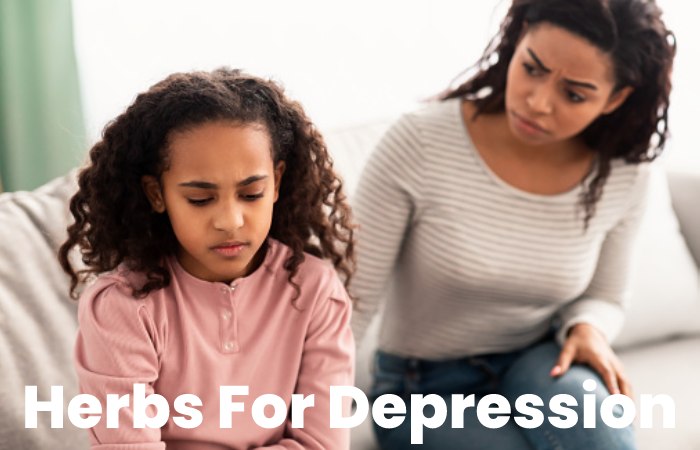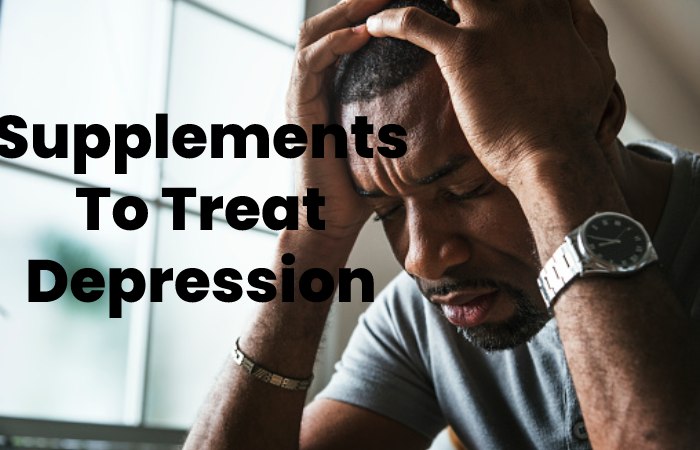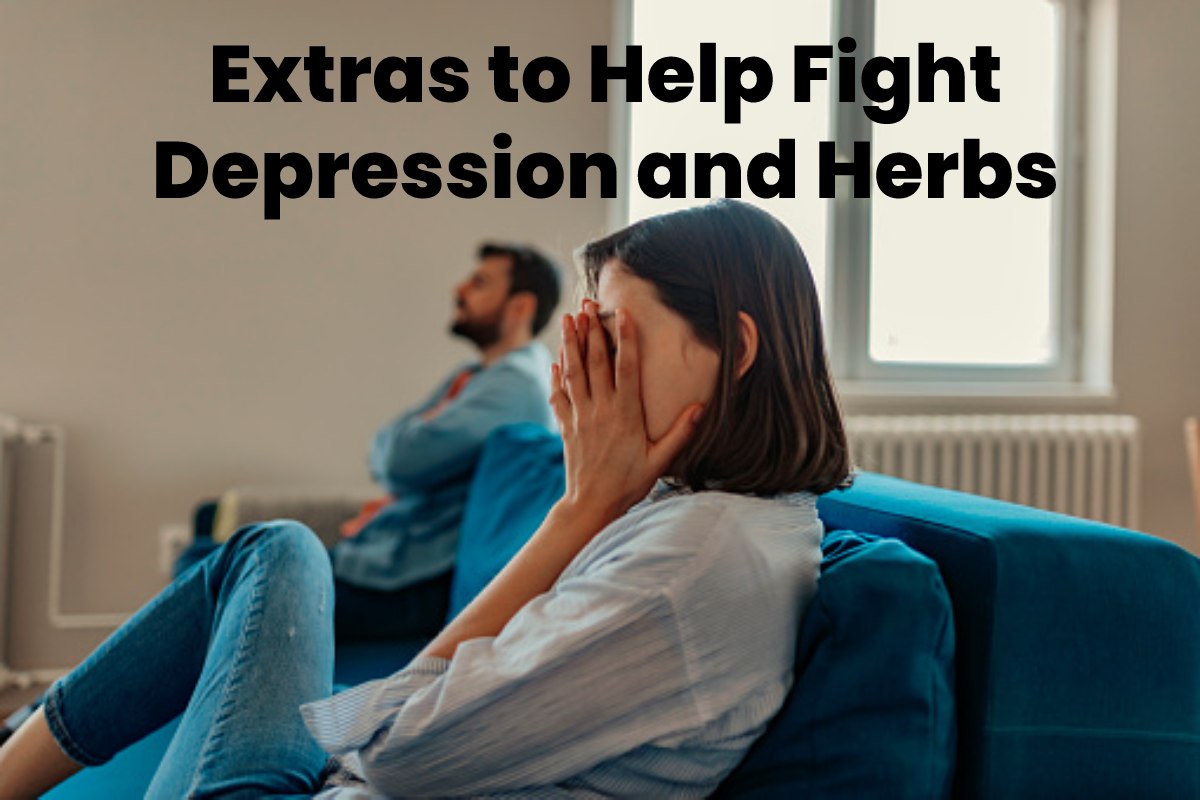Extras to Help Fight Depression
Depression is a mental weli-being illness that affects more than 17 million adults in the United States. However, the valid number remains believed to be much higher, as many people with depression do not seek treatment for various reasons.
Below are the five classifications of depressive conditions, which share characteristics such as sadness, irritable mood, a feeling of emptiness, and cognitive changes that affect functioning:
- major depressive disorder (MDD)
- disruptive mood dysregulation disorder
- persistent depressing disorder
- premenstrual dysphoric disorder
- depression disorder due to another condition
Depressive disorders remain treated with medicine and psychotherapy. In addition, lifestyle alterations, including making dietary changes and taking certain supplements, can also help people in recovery and prevent relapse.
That said, herbs and dietary supplements remain not monitored by the US Food and Drug Administration (FDA) in the same way that medications are. So you can’t always be sure what you’re getting and whether it’s safe.
For example, some investigations show that specific vitamins, minerals, herbs, and other compounds may provide additional benefits in improving symptoms of depression.
Also, more studies are needed to determine which natural supplements are most likely to help with depression and what side effects they may cause.
Before introducing any supplement to your diet, it’s worth doing your research and discussing it with your doctor. This article lists 11 supplements that can benefit people with depression.
Herbs For Depression
Rhodiola (Rhodiola rosea)
Rhodiola is an herb linked to a change of potential health benefits when taken in supplement form. These include reduced depressive symptoms and a better-quality stress response, which can help your body adapt to stressful situations.
The herb may exert antidepressant effects through its ability to improve nerve cell communication and reduce hyperactivity of the hypothalamic-pituitary-adrenocortical (HPA) axis.
The HPA axis is a compound system that regulates your body’s response to stress. Research suggests that HPA axis hyperactivity may be associated with significant depression.
Some studies show that using Rhodiola supplements may benefit people with depression by affecting neurotransmitter receptors and molecular networks, positively affecting mood.
For example, a study of 57 people with depression found that treatment with 340 mg of Rhodiola extract per day for 12 weeks led to clinically significant reductions in depressive symptoms.
Also, although the Rhodiola treatment was less effective than the antidepressant drug Sertraline, it caused far fewer side effects.
Another study found that a supplement made up of Rhodiola and saffroned significantly reduced symptoms of depression and anxiety in adults with mild to moderate depression after six weeks.
Saffron
Saffron is a brightly colored spice packed with antioxidant compounds, counting the carotenoids crocin and crocetin. Interestingly, saffron has shown promise as a standard treatment for depression.
Research has found that it increases levels of the mood-enhancing neurotransmitter serotonin in the brain. While exactly how this process works are unknown, saffron remains thought to inhibit serotonin reuptake, keeping it in the brain longer.
An analysis of five skillful randomized trials found that saffron supplementation significantly reduced symptoms of depression in adults with MDD compared to placebo treatments.
Additionally, the review found that saffron supplements were just as effective at reducing symptoms of depression as antidepressant medications.
However, the scholars acknowledged that more extensive trials with more extended follow-up periods were needed to healthier assess saffron’s ability to help treat depression.
Supplements To Treat Depression
Omega-3 Fatty Acids
Omega-3 fats are vital fats, so you must get them from your diet. In addition, some studies show that omega-3 supplements can help treat depression.
A 2020 analysis of randomized control trials involving 638 women found that omega-3 fatty acid supplementation significantly improved depressive symptoms in pregnant and postpartum women.
Extras with an advanced eicosapentaenoic acid (EPA) ratio to docosahexaenoic acid (DHA) were particularly effective in the study. EPA and DHA are two categories of omega-3 fatty acids, both of which are common in shellfish.
Another review of 26 studies involving 2,160 participants found that omega-3 supplementation had an overall positive effect in treating symptoms of depression.
Specifically, the researchers concluded that omega-3 formulations containing 60 percent or more EPA at a dose of 1 gram or less per day were the most effective.
While these findings are promising, additional studies have seen mixed results. For example, a 2019 study originate that omega-3 supplements did not reduce depressive symptoms in children and adolescents with MDD.
In general, omega-3 supplements remain a well-tolerated and healthy addition if your diet lacks fatty fish. They may also help treat depression in specific populations. However, more research is required.
NAC (N-acetylcysteine)
NAC is an ancestor to the amino acids L-cysteine and glutathione. Glutathione is considered one of the most significant antioxidants in your body and is critical for regulating inflammation and protecting cells against oxidative damage.
Taking NAC has remained shown to offer several health benefits, including increasing glutathione levels in your body.
Research shows that individuals with depression are more likely to have higher levels of inflammatory cytokines such as C-reactive protein, interleukin-6, and tumor necrosis factor-alpha. Therefore, taking NAC can help reduce inflammation and relieve depressive symptoms.
Additionally, NAC could improve neurotransmitter dysregulation in those with psychiatric conditions. For example, dysregulation of neurotransmitters such as dopamine and glutamate may remain related to mood disorders and schizophrenia, among other diseases.
Finally, a 2016 appraisal of five studies concluded that NAC treatment significantly reduced depressive symptoms and improved functioning in depressed patients compared to placebo treatments. Furthermore, NAC supplements were safe and well-tolerated.
Doses of 2 to 2.4 grams per day remain believed to help treat mental health conditions such as depression.
Vitamin D
Vitamin D is an essential nutrient that performs numerous crucial functions in your body. Unfortunately, many people do not have sufficient vitamin D levels, including people with depression.
Research shows that people with unhappiness are more likely to be deficient in vitamin D. People with the condition tend to have lower vitamin D levels than the general population, and people with the lowest levels tend to have the most significant depressive symptoms.
Vitamin D may combat depression through several instruments, including reducing inflammation, regulating mood, and protecting against neurocognitive dysfunction.
A 2019 review of four randomized measured trials found that vitamin D supplementation led to clinical benefits in people with major depression. Extras to Help Fight Depression.
Vitamin B
B vitamins play an essential role in neurological function and mood directive. B vitamins, counting folate, B12, and B6, are necessary for producing and regulating neurotransmitters such as serotonin, gamma-aminobutyric acid (GABA), and dopamine.
Research shows that vitamin B12 and folate deficiencies can increase the risk of depression, and taking supplements with these nutrients may help reduce symptoms of depression in specific populations.
For example, folate supplementation may reduce symptoms of treatment-resistant depression in children and adults who have a genetic mutation that affects folate metabolism.
Zinc
Zinc is a mineral critical for brain health and the regulation of neurotransmitter pathways. It also has antioxidant and anti-inflammatory properties. Zinc deficiency is strongly related to an increased risk of depression and the severity of depression symptoms.
An analysis of 17 observational studies found that blood zinc levels were about 0.12 μg/mL lower in people with depression than in those deprived of the condition. The study also associated better zinc deficiency with more significant symptoms of depression.
S-adenosilmetionina (SAMe)
SAMe is a sulfur-containing compound that shows promise in treating depression. It is found naturally in your body and plays an essential role in brain function.
A 2020 review of eight studies originates that SAMe. When used alone or with antidepressant medications, improves symptoms of depression in people with MDD. Daily doses ranged from 200 to 3,200 mg, while treatment time ranged from 2 to 12 weeks.
Grass Of San Juan
St. John’s wort is a general herb that has shown the potential to reduce symptoms in people with depression. A 2016 appraisal of 35 studies found that behavior with St. John’s wort reduced symptoms in people with mild to moderate depression. However, the supplement is not practical for treating simple depression.
Like many additional herbs, St. John’s wort has the latent to interact with commonly used medications. Significantly, the herb can severely interact with some antidepressant medications, leading to life-threatening side effects. Extras to Help Fight Depression
Magnesium
Magnesium is an essential mineral that can benefit people with depression. It deficiency remains shared between people with depression, and research shows that taking magnesium supplements can reduce symptoms of depression.
A randomized study of 126 people with mild to moderate depression found. That taking 248 mg of magnesium per day for six weeks significantly improved symptoms of depression compared to a placebo.
Also read: What causes diabetes? Types of Diabetes, How to Avoid Prediabetes
Conclusion
Depression is a rational health disorder that affects millions of people worldwide. Although depression remains usually treated with medication and therapy. Some people may want to try other safe methods such as dietary modifications or supplements to reduce their symptoms. Extras to Help Fight Depression

